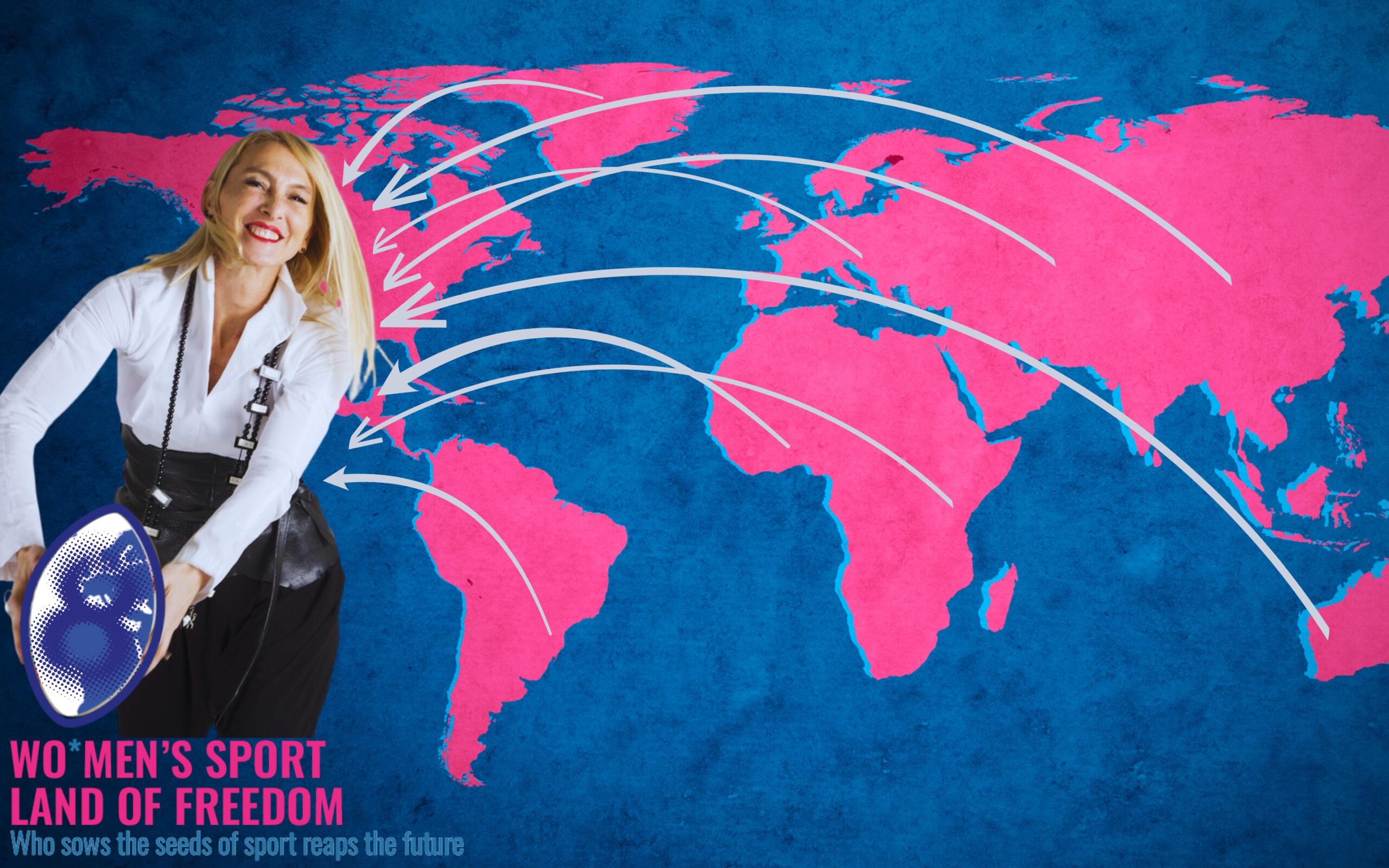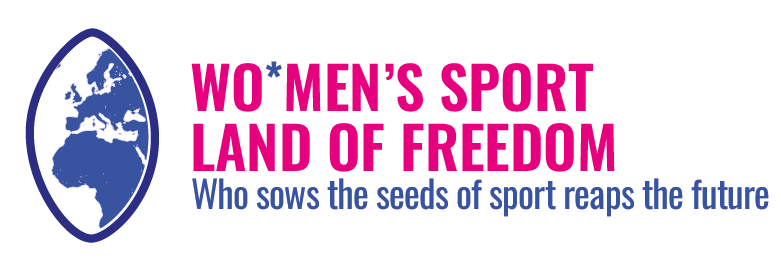
ISRAEL: FROM THE VERY BEGINNING, RUGBY HAS SHAPED THE WAY I LIVE MY LIFE.
“From the very beginning, rugby has shaped the way I live my life.”
Thanks to:
Naama Badihi
Resp.girls development within the Israel Rugby Union, former captain Israelian nationa team
- The history of the women’s movement in Israel
- Testimonials
- Reading time: 7 minutes
ISRAEL - Find out more
Israel is a parliamentary republic in the Middle East with about 9.8 million inhabitants in 2024, of which around 50.1% are women. Women hold 29% of the seats in the Knesset and participate in the labor force at 59.5%, compared to 67.4% of men. Despite a strong female presence in higher education and professional sectors, wage gaps persist, and women remain underrepresented in top political and economic leadership positions.
(SOURCE: data.unwomen.org; World Bank Gender Data Portal; Israel Central Bureau of Statistics; IPU Parline)
HISTORY OF THE COUNTRY
1. When did the women’s rugby movement start in your country and what is its history? How is rugby structured in your country?
Women’s rugby in Israel began in 1995 in Jerusalem, with a group of women playing rugby union alongside the men’s team. The initial team dissolved in 1998, but in 1999 a new team was founded in Tel Aviv. Around 35 women trained under the guidance of a New Zealand coach named Mike and played domestic 15-a-side matches. In 2000, the team toured Ireland and also took part in 10-a-side tournaments in the Netherlands and Belgium. In 2005, the first women’s rugby sevens league in Israel was founded by two pioneering and highly motivated women determined to expand women’s rugby in the country. That same year marked the creation of the Israeli Women’s National Rugby Sevens team, which has since participated annually in the Rugby Europe Championships. On their first international trip, the team placed 9th in Prague, competing against sides such as Germany, England, and Austria. From the transition to sevens in 2005 onward, no women’s rugby 15s teams have played competitively in Israel. Between 2007 and 2008, new club teams were established in Jerusalem and Haifa, and in 2012 a team was founded in the Upper Galilee. Since then, additional teams have been formed in Rehovot, Ra’anana, Hadarim, and more recently in 2024, in the Golan Heights. Between 2022 and 2024, several national training camps were organized for players across the country, with the aim of teaching and promoting women’s 15s rugby as part of a broader vision to reintroduce the game in Israel. Today, there are seven active women’s teams competing in a national rugby sevens circuit held monthly for eight months of the year. The Israeli Women’s National Team competes in the Rugby Europe Championships at the Conference and Trophy levels.
2. Do you think playing rugby has a social impact for a woman in your country? What can rugby offer them?
Not yet. In my opinion, to have a social impact, there needs to be greater public familiarity with the sport. Since rugby is not a “traditional” sport in Israel like football or basketball, the challenge is greater in terms of reaching a wider audience and broader circles. That said, rugby offers a unique platform for women who play this sport to express their strength, together with their teammates. Together, we push boundaries, face physical and mental challenges, win and lose, and learn to grow from all of it. For this reason, my teammates have become my closest friends off the field as well. They’ve seen me under immense pressure and emotional stress, covered in mud, sweaty, injured – they know me in my most authentic form. This sense of sisterhood is deeply rooted in all women’s teams in Israel. Once a month, we come together from every corner of the country to play in the national sevens tournament. These moments create a profound sense of connection, strength, and belonging. Rugby has so much to offer women in Israel. It creates a space for healthy aggression, performance under pressure, decision-making, discipline – both personal and collective – loyalty, creative thinking, leadership, and deep camaraderie. I believe these tools are particularly crucial for women in my country, where life itself often feels like an exercise in survival. Living in Israel requires strong mental resilience – and rugby builds it, in so many powerful ways.
JOURNEYS THROUGH RUGBY
1. When did you start playing rugby and how you discover it?
I started playing rugby in 2011, at the age of 21. During my childhood I danced – classical ballet and modern dance – and I also practiced athletics recreationally. During my military service, I served as a combat fitness training officer, responsible for the training program of a base with 3,000 soldiers. At 21, I moved into an apartment in Jerusalem where my neighbor played for the Jerusalem Lionesses. She saw me working out and invited me to a rugby training session. I had never heard of rugby and couldn’t even imagine what to expect. But one session was enough – I immediately fell in love with the sport. Having been a dancer growing up with five brothers, I had always craved physical intensity, aggression, and pure energy. Rugby gave me a new stage – one where I could express a different side of my body and soul.
2. What has rugby taught you that has impacted your daily life? Can you give me an example of when a rugby mindset was useful?
From the very beginning, rugby has shaped the way I live my life. Principles such as getting back up after a fall, always moving forward, seeking opportunities to break through barriers, and believing in myself even in the most desperate moments – all of this has become part of how I face challenges off the field. These principles proved invaluable during two particularly difficult periods in my life. In 2017, my mother passed away after a five-year battle with cancer. My belief in my ability to rise from despair, to take even the smallest step forward – even when it seemed pointless – helped me choose life, again and again. The tools I had gained through rugby were not available to me when I was 12 and my brother was killed during his military service. Although I had grown since then, it is clear to me that thanks to these tools, I had greater strength to process grief, endure suffering, and overcome loss. A year after losing my mother, while captaining the national team at the European Championship, I tore my ACL, LCL, and meniscus. I went from training all season for this moment to being unable to walk, watching from the sidelines. But just like on the field, I knew that if I set myself a goal – to recover and return to play – I would achieve it. I approached rehab with the same determination I had on the field. A year later, I returned as captain and led my team to win the tournament.
3. Can you give me 3 words that connect rugby to freedom?
Self-confidence, safety, sisterhood.
4. What does live in a land of freedom mean to you?
Living in a free country means having the power to choose what brings me joy, where I want to grow, and how I want to live. As a girl who was sent to dance while her five brothers learned karate, I found true freedom in a place where no one expected to see a woman – in the mud, under the sun or the rain, with bruised knees, messy hair, and everything else. That’s where I found myself – on the rugby field.
5. What object represents you and why? What is an aphorism that guides your life?
My rugby boots. For me, they represent movement – always being in motion, adapting to changes, and finding the gap in the fence to keep moving forward. They are a symbol of forward momentum in my life. “If I am not for myself, who will be for me?” In Hebrew it sounds even better: אם אין אני לי, מי לי I believe in being the first to reach out a hand to myself. I trust my inner strength, while knowing when to ask for support. But above all, I expect myself to get back up on my own.
